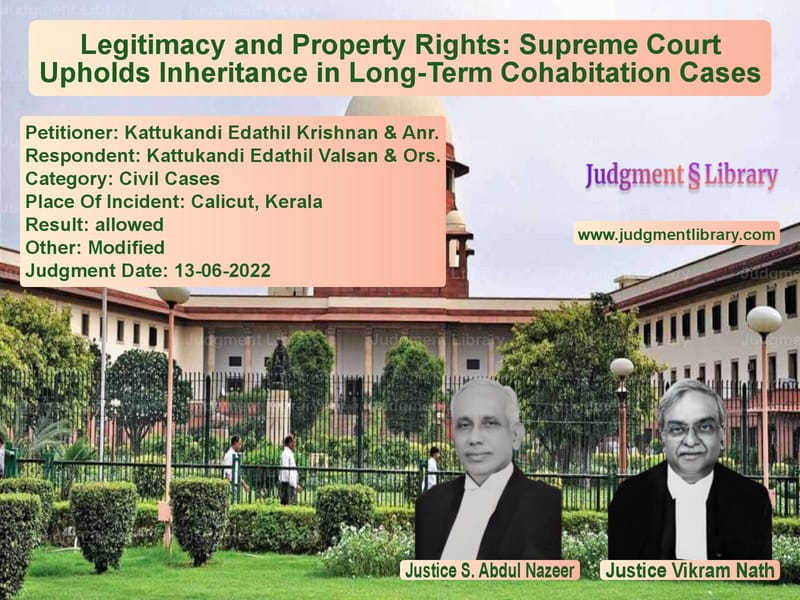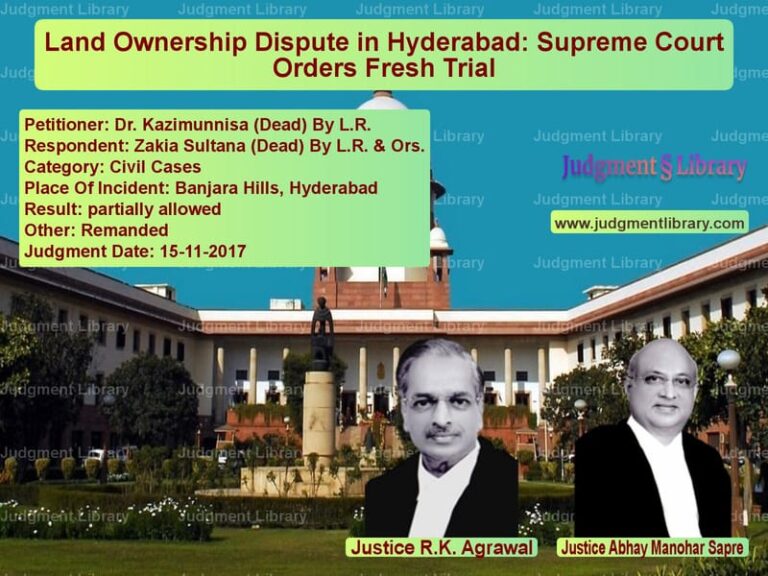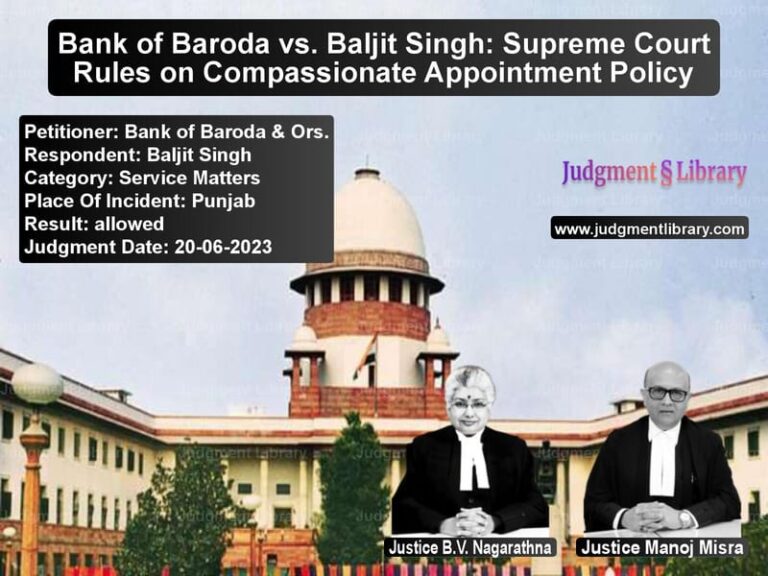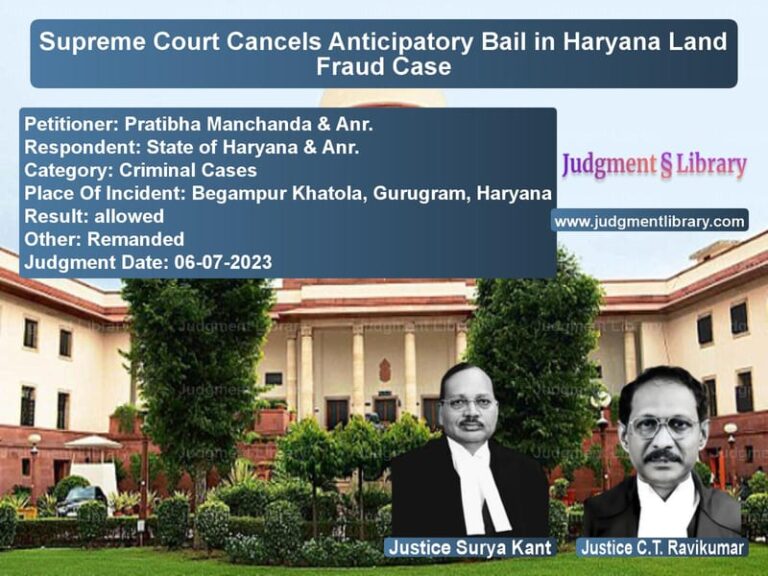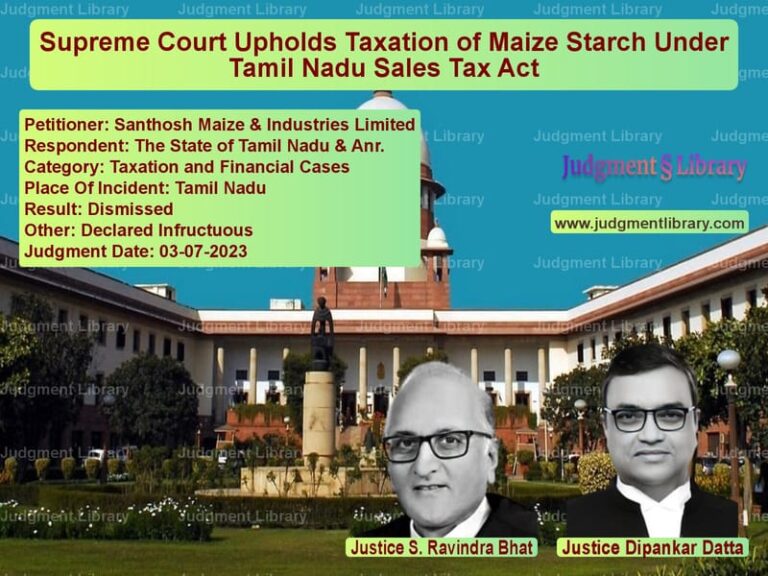Legitimacy and Property Rights: Supreme Court Upholds Inheritance in Long-Term Cohabitation Cases
The Supreme Court of India recently addressed a crucial legal issue concerning legitimacy, inheritance, and property rights in the case of Kattukandi Edathil Krishnan & Anr. v. Kattukandi Edathil Valsan & Ors.. The dispute revolved around whether the first plaintiff, born out of a long-term relationship, was a legitimate son entitled to inherit ancestral property under Mitakshara law. The Supreme Court ultimately upheld his right to inheritance, reinforcing the presumption of marriage in cases of long cohabitation.
The case was significant because it not only reaffirmed a child’s right to property even in the absence of documentary proof of marriage but also emphasized the necessity of a streamlined partition process in courts. The ruling directed lower courts to take proactive steps in final decree proceedings to avoid unnecessary litigation delays.
Background of the Case
The case involved a property dispute in a Thiyya family of Calicut, governed by Mitakshara law. The suit property originally belonged to one Kattukandi Edathil Kanaran Vaidyar, who had four sons: Damodaran, Achuthan, Sekharan, and Narayanan. The first plaintiff, Krishnan, claimed to be the son of Damodaran and sought a partition of the suit property, arguing that he was entitled to half of it.
The defendants contested this claim, asserting that Damodaran never married Krishnan’s mother, Chiruthakutty, and that Krishnan was an illegitimate child with no right to inherit.
Petitioner’s Arguments
The plaintiffs argued that:
- Krishnan was born out of a long-term relationship between Damodaran and Chiruthakutty.
- The law presumes the legitimacy of children in cases of long-term cohabitation between a man and a woman.
- Multiple documents, including birth certificates, military records, and letters, demonstrated Krishnan’s status as Damodaran’s son.
- The principle of legitimacy should be upheld, as the courts favor legitimacy over bastardy.
Respondent’s Arguments
The defendants countered by claiming:
- There was no evidence proving a valid marriage between Damodaran and Chiruthakutty.
- Krishnan was not legally entitled to inheritance under Mitakshara law.
- The documents presented by the plaintiffs were unreliable and created after Damodaran’s death.
- Partition should not be granted as there was no legal basis for the claim.
Key Observations of the Supreme Court
The Supreme Court delivered a landmark ruling by upholding the legitimacy of Krishnan and granting his inheritance rights. The Court observed:
“If a man and a woman live together for long years as husband and wife, a presumption arises in favor of wedlock. Such a presumption could be drawn under Section 114 of the Indian Evidence Act.”
The Court relied on past rulings, including:
- Andrahennedige Dinohamy v. Wijetunge Liyanapatabendige Balahamy (1927): Holding that long cohabitation leads to a presumption of a valid marriage.
- Badri Prasad v. Dy. Director of Consolidation (1978): Confirming that the law favors legitimacy and frowns upon bastardy.
- S.P.S. Balasubramanyam v. Suruttayan (1994): Establishing that cohabitation over long periods raises a presumption of marriage.
The Court found that:
- The defendants failed to provide evidence to rebut the presumption of marriage.
- The birth certificate, military records, and letters provided sufficient proof of Krishnan’s lineage.
- The High Court erred in reversing the Trial Court’s ruling without properly considering the evidence.
Final Judgment and Directions
The Supreme Court ruled in favor of the appellant and issued the following directives:
- The High Court’s ruling was set aside, and the Trial Court’s decree was restored.
- Krishnan was declared the legitimate son of Damodaran and entitled to a half share in the property.
- The Court directed lower courts to expedite final decree proceedings and avoid unnecessary litigation delays.
- The Registry was instructed to circulate the ruling to all High Courts for implementation in similar cases.
Conclusion
The Supreme Court’s judgment in this case is a milestone in inheritance law and the rights of children born from long-term relationships. By upholding the principle of legitimacy and ensuring a fair division of ancestral property, the ruling reinforces the importance of legal protections for all heirs, irrespective of formal marriage documentation.
Additionally, the Court’s directions to streamline partition cases and final decree proceedings aim to prevent excessive delays in property disputes, ensuring that rightful heirs receive their due share without prolonged litigation.
Petitioner Name: Kattukandi Edathil Krishnan & Anr..Respondent Name: Kattukandi Edathil Valsan & Ors..Judgment By: Justice S. Abdul Nazeer, Justice Vikram Nath.Place Of Incident: Calicut, Kerala.Judgment Date: 13-06-2022.
Don’t miss out on the full details! Download the complete judgment in PDF format below and gain valuable insights instantly!
Download Judgment: kattukandi-edathil-k-vs-kattukandi-edathil-v-supreme-court-of-india-judgment-dated-13-06-2022.pdf
Directly Download Judgment: Directly download this Judgment
See all petitions in Property Disputes
See all petitions in Succession and Wills
See all petitions in Judgment by S. Abdul Nazeer
See all petitions in Judgment by Vikram Nath
See all petitions in allowed
See all petitions in Modified
See all petitions in supreme court of India judgments June 2022
See all petitions in 2022 judgments
See all posts in Civil Cases Category
See all allowed petitions in Civil Cases Category
See all Dismissed petitions in Civil Cases Category
See all partially allowed petitions in Civil Cases Category

